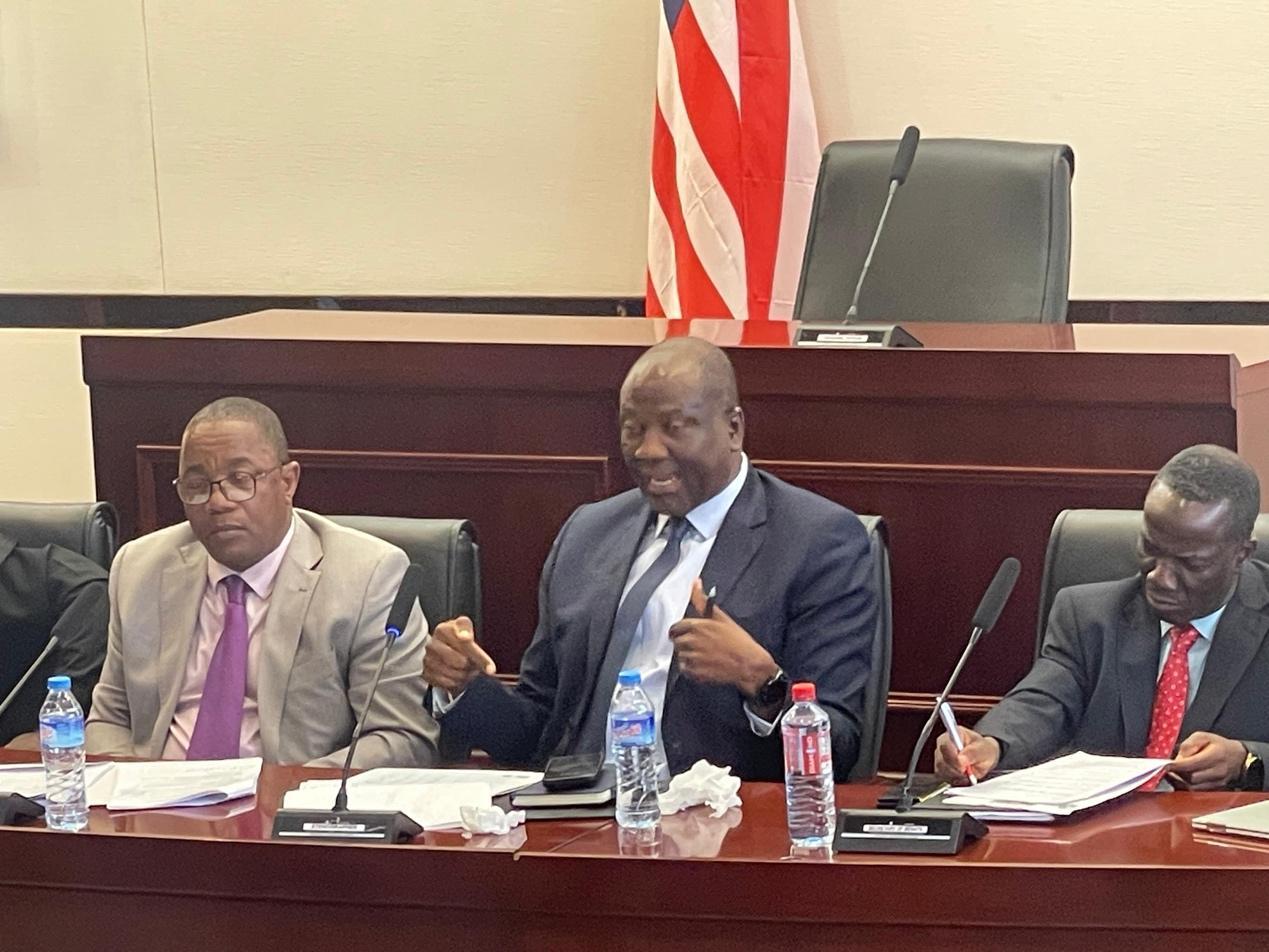Africa-Press – Liberia. The bill, currently under legislative review, aims to require exporters of key commodities such as iron ore, rubber, and gold to repatriate their foreign earnings through Liberian commercial banks.
The Liberian Senate, through its Joint Committee on Ways, Means and Finance, Banking and Currency, has held a public hearing on the proposed Export Proceeds Repatriation Bill, which seeks to support local investment and strengthen the country’s foreign currency reserves.
The bill, currently under legislative review, aims to require exporters of key commodities such as iron ore, rubber, and gold to repatriate their foreign earnings through Liberian commercial banks.
Governor of the Central Bank of Liberia (CBL), Henry Saamoi, said the proposed legislation would help Liberia capture more economic benefits from its mineral exports. He noted that, at present, no legal framework exists to ensure that proceeds from exported minerals return to the local banking system.
“If we consider just simple export repatriation, all we are saying is that for every ounce of gold or every ton of iron ore being exported, we want the proceeds to come back,” Saamoi said during the hearing. “There are no restrictions on how the proceeds are used, but they must come to Liberia first.”
Saamoi added that the absence of capital control has allowed exporters to keep their earnings in foreign banks, limiting the ability of domestic banks to support the private sector and small and medium enterprises.
He explained that if exporters were required to channel their funds through local commercial banks, it would increase liquidity and improve access to credit in the country.
He further stated that exporters could still transfer funds abroad if needed, but bringing the money into the local banking system first would support economic stability.
The Central Bank Governor also emphasized that the proposed law would introduce penalties for exporters who fail to repatriate earnings or make false declarations.
“There is no control or restriction now,” he said. “Exporters can bring in US$100 million today and gradually move it out. This bill will address that gap.”
Policy Analyst Narvin Ireland of Integrity Watch Liberia (IWL) recommended removing the confidentiality clause in the bill to enhance transparency. He also called for stiffer penalties for non-compliance, including increasing the fine for violators from 10 percent to 15 percent of declared proceeds and raising penalties for under-declaration or delays from 5 percent to 10 percent.
Ireland proposed a clear timeframe for suspending or revoking the licenses of exporters who fail to comply, and stressed the need for robust enforcement by the Central Bank and the Ministry of Commerce and Industry.
Anderson Miamen, Executive Director of the Center for Transparency and Accountability in Liberia (CENTAL), supported the bill, highlighting its potential economic impact. He said if properly implemented, the law would increase tax revenue, improve credit access, and create jobs.
Miamen also called for a “strong punishment and sanction regime” for violators, as well as incentives for compliant businesses. He recommended transparent valuation of exported commodities and full public disclosure of proceeds and transaction details to enhance accountability.
Representatives from the Ministry of Finance and Development Planning, Liberia Bankers Association, Liberia Extractive Industries Transparency Initiative (LEITI), and other stakeholders also participated in the hearing.
The committee is expected to incorporate recommendations from the hearing as it prepares its final report to plenary.
For More News And Analysis About Liberia Follow Africa-Press






